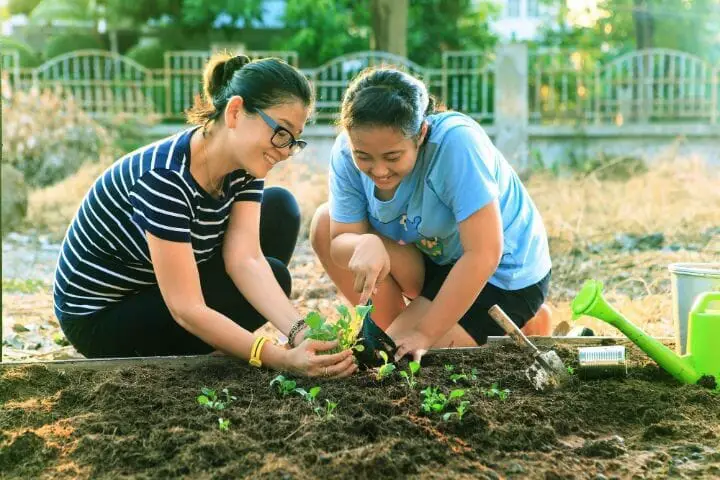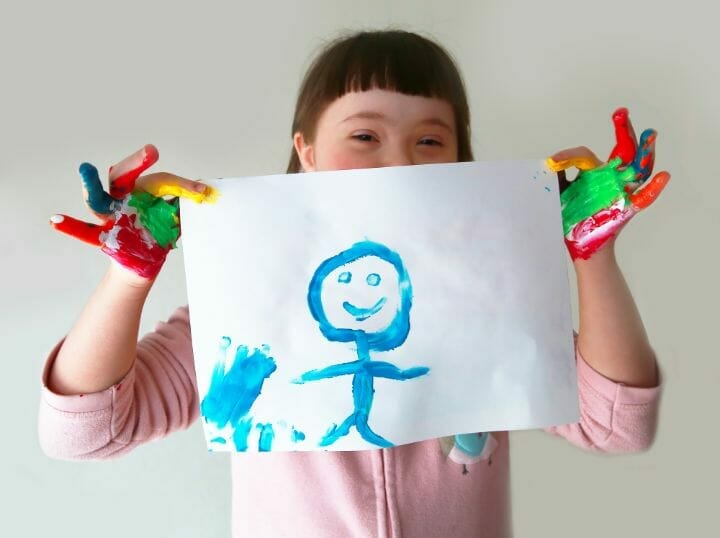Like any other human being, individuals with developmental disabilities are fully capable of participating in recreational and social activities. Ranging from outdoor sports to art and music activities, there are numerous things in which individual adults with developmental disabilities can participate.
Several outdoor activities can help individuals with intellectual disabilities live an engaging and healthy life. Let us delve into a few of these activities.
Contents
Developmental disabilities can be of various types. It can be intellectual, sensory, metabolic, or degenerative. Adults with a sensory disability may engage in mental recreational activities, such as group board games. On the other hand, practicing basic sports, like dodge ball or racing can help adults with intellectual disabilities.
However, following monotonous routines could deprive the individuals of new and exciting experiences. It is essential because, for many adults with mental disabilities, recreational or leisure activities are planned by family members or professional caregivers, who generally stick to familiar and comfortable settings.
Therefore, as a caregiver or family member, if you plan activities for a loved one with a mental disability, you should consider their interests. In addition to that, you may also want to weigh their ability to participate.
For example, a few individuals may lack tolerance levels, have shorter attention spans, and face behavioral challenges. These people may not be able to participate in specific types of activities.
So, as a backup, if an individual cannot participate in a particular activity, you must plan to assist that person and make the activity more accessible.
While outdoor activities are great, in the times of covid, you may not be able to take the individual to public places for any activity. Many activities can also be organized in your backyard with a close group of friends in those situations. All these exercises can provide opportunities for skill development and relationship building opportunities.
Community integration is critical for the growth of any human being. When an individual familiarizes himself with the community, it gives him access to local stores, restaurants, and other public avenues.
It also helps them become more independent. These activities can also provide individuals with developmental disabilities a sense of achievement and personal growth and foster independence.
If possible, one can also start a recreational, social group for adults with mental disabilities. These individuals can participate in a variety of activities with others. They can watch comedy shows, go for week-long vacations, and also participate in sporting events.
Helping an adult with special needs interact with the community will lead him to build stronger relationships with others and improve his overall quality of life.
As a part of a family, friend, or caregiver, you expose the person with mental disabilities to newer experiences, alleviate his stress, and promote happier and healthier lifestyles. This article lets us dig deeper into all the activities you can arrange for your loved ones with disabilities.
Several outdoor activities can help individuals with intellectual disabilities live an engaging and healthy life. Let us delve into a few of these activities.
You may also like Best Busy Boards for Dementia Patients
Physical Activities
Physical exercise can help adults with mental disabilities improve their psychological and physical capabilities. Activities like bowling, workout classes, team sports, and swimming can also help promote all-around health without compromising fun for these individuals.
Moreover, participating in adaptive and organized recreational activities, such as horseback riding and alpine skiing, can also help the individuals with developmental disabilities experience improved family life, improved social life, enhanced quality of life, and better health. Combining group activities with exercise and social interaction will enhance an individual’s enjoyment and motivation.
Regardless of our mental abilities, all of us may get benefits from muscle-strengthening and aerobic activities. Therefore, adults with intellectual disabilities are no different than anybody else on this front. As a part of the family or a caregiver, it is our responsibility to ensure the individual in our care stays physically active.
You may help him or her try a few of the activities listed below to maintain their physical activity:
Aerobics
Aerobic exercises such as walking, team sports, yoga, swimming, and biking, are a few of the great activities a person with mental disabilities can do. If a person suffers from physical disabilities as well, we can also find an adapted variant of these routines.
Walking is one of the best activities which can be done alone or in small groups. It combines both physical exercise and socialization. Similarly, hiking is great fun in small groups. Many public parks and city walkways offer spaces for these activities safely.
Muscle-strengthening routines
Regardless of their psychological abilities, muscle strengthening exercises can be a great way to keep them active for physically capable adults. Two days a week workout covering major muscle groups for about 75 minutes can be sufficient to achieve this objective.
Besides weight training in gyms, one can also do group yoga and resistance bands to strengthen muscles. Furthermore, structured and repetitive physical activities help develop and improve strengths and motor skills.
Although adults with physical disabilities may have limited exercise routines, they can adapt these workouts to an individual’s abilities. For example, adults paralyzed from the waist down may be capable of doing upper body workouts if they have normal strength in the upper body.
Socio-physical Activities
All of us can empathize with many adults with mental disabilities who may feel isolated because of their limitations. These individuals would not only enjoy social activities but also will benefit from more social-recreational activities.
You may also like Best Hiking Sticks for Seniors
Cognitive & Memory Activities
Many adults with mental or developmental disabilities have a unique creative side. Although few of them may require extra help to pursue their interest because of their disabilities, they are as creative, if not more, as are adults with no such disabilities. These individuals would love to have creative ways to engage themselves. They may love writing, playing an instrument, or creating art.
By providing these individuals with disabilities a platform to share their talent with others, we can successfully integrate them with the community. We can also allow the families to observe their creations in a gallery as part of a scheduled event. Let us look at a few activities that we can arrange for persons with mental disabilities.
Outdoor Art Activities
Art is an excellent way of expressing feelings, emotions, and thoughts. It is especially vital for individuals who cannot do so by speaking clearly or coherently. Many people with intellectual disabilities find creating arts and crafts very engaging as it inspires their creativity.
There are so many art forms one can participate in. Whether it is painting on a canvas, coloring sketches in a book, developing origami, making jewelry or ornaments, many individuals would love to spend time creating something. All of these activities give them a sense of accomplishment.
Group Music Activities
Music is another thing that provides excellent benefits to adults with developmental disabilities. There are numerous musical activities for adults with mental disabilities.
They can participate in activities like foot tapping, play instruments, hand clapping, or singing. As they feel the rhythm and vibrations stimulating their senses, music helps improve their emotional and mental well-being.
Music activities also motivate action, captivates attention, and brings joy. By affecting both the hemispheres of the brain positively, music provides a multi-sensory experience.
Like other forms of art, music is also a great way to connect with others. It gives those who struggle with language or have nonverbal limitations a way to express their feelings.
Moreover, individuals with mental disabilities can celebrate their successes and express their joy through music and song. It helps them boost their self-esteem and improve their quality of life.
You may also like Benefits of Gardening for Seniors
Artistic and Sensory Activities
Besides art and music activities, there are many other activities, which can induce sensory stimulations in humans. Sensory stimulation positively affects individuals with developmentally disabled individuals. These activities foster artistic and sensory skills in individuals with developmental needs. A few of these activities are Crafting, Gardening, and Cooking.
Crafting
Crafting may include working with clay or creating useful or decorative articles using color, texture, words, sounds, or combinations. In addition to exploring their creative side, individuals also bond with others and experience joy through crafting.
Gardening
It is another way to bring multiple adults with special needs together to work on plants and flowers. When they see seeds growing into plants and giving flowers, vegetables, and even trees, they develop strong relationships with others.
Cooking
While most of us love eating, many of us also love cooking. It is an excellent activity for developmentally disabled adults. They may not only have fun but also learn self-reliance and get a sense of accomplishment.
If an individual shows interest in cooking, we can start by showing them various spaces within the kitchen, culinary kitchen tools, and ingredients. When they see how glasswares and cutleries are placed and stacked, you may notice the glitter in their eyes if they are interested in cooking.
You may also like Activities for Disabled Adults in Wheelchairs
Conclusion
When choosing an activity for adults with mental disabilities, we should try to find what they can do instead of focusing on what they cannot. All the outdoor activities they participate in can significantly help them build new connections, learn team skills, live a healthy life, and improve the overall quality of their lives.



